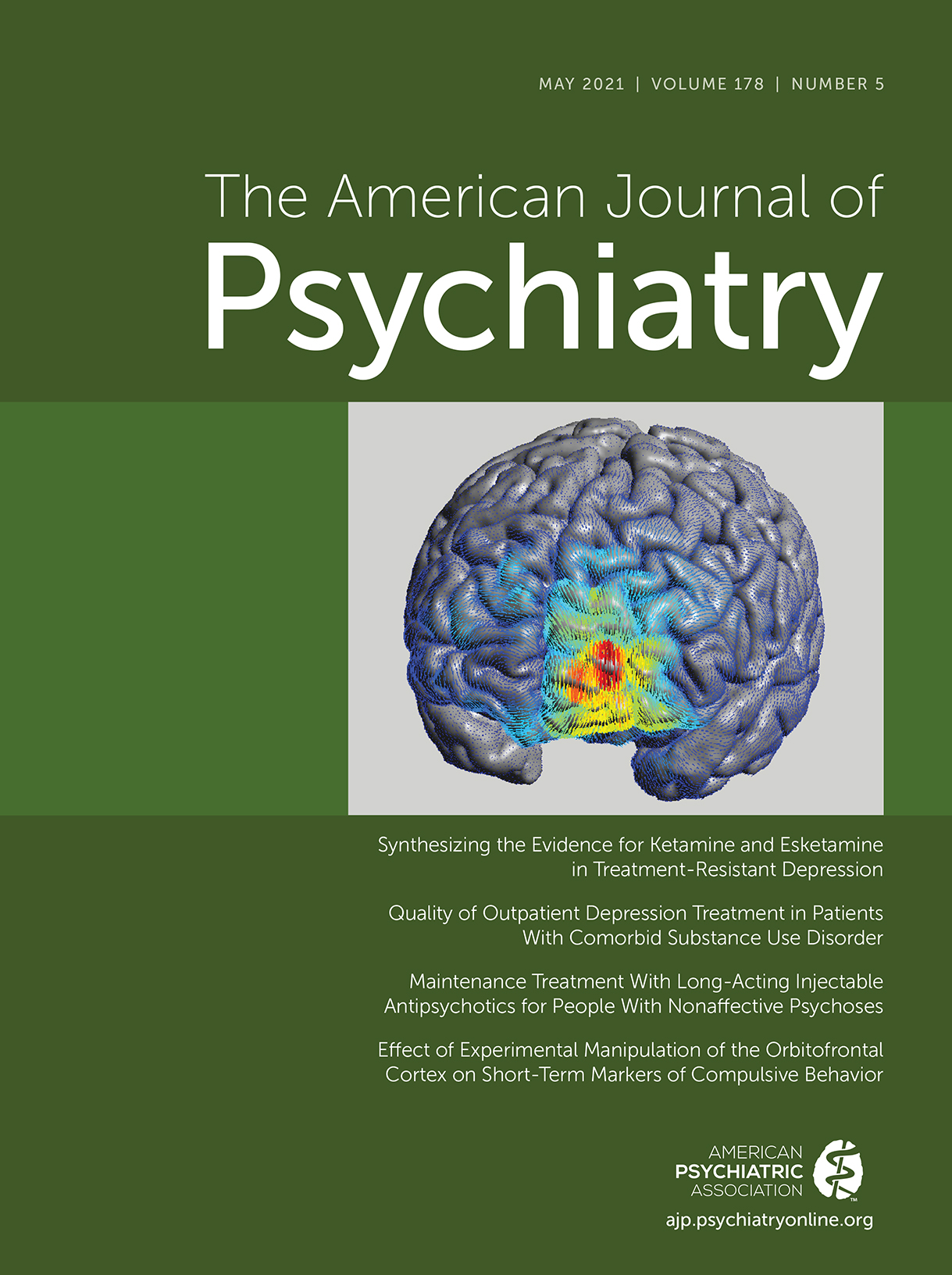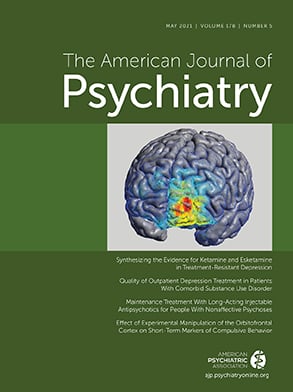The COVID-19 pandemic is dramatically affecting mental health and the treatment of psychiatric illness. Isolation and stress are associated with worsening symptoms, substance abuse, and suicidality (
1). For those with the most severe forms of depression and other mental illnesses, electroconvulsive therapy (ECT) is a critical and often lifesaving treatment strategy, but with COVID-19, the administration of ECT has been markedly disrupted.
Because of the need for bag and mask ventilation during anesthesia, ECT for patients with highly infectious respiratory conditions poses a substantial risk to health care workers and other patients, given the potential for aerosolizing viral droplets. Early in the pandemic, the Centers for Medicare and Medicaid Services issued guidance focused on limiting nonemergent and elective medical care to conserve health care resources and reduce infection rates within a tiered acuity framework (
2). Many health care institutions classified ECT as an elective procedure or were concerned about scarce personal protective equipment and anesthesiology resources, leading to a flurry of concerns from clinicians, patients, and families (
3). These concerns led APA and the National Network of Depression Centers to publish position statements calling for the continued availability of ECT (
4,
5).
To better understand the actual extent of the COVID-19 impact on patients and ECT practice in the United States, the ECT Task Group of the National Network of Depression Centers, a consortium of 27 U.S. academic institutions, surveyed members about the effects of COVID-19 on 20 ECT programs. During April and May of 2020, 80% (16 of 20) of ECT programs in the National Network of Depression Centers reported operating at less than 50% of regular clinical volume, and some reported substantially greater declines. ECT teams of psychiatrists and nurses scrambled to postpone or cancel appointments for many patients who were in acute or maintenance ECT courses. In addition, 95% of programs were required to delay or defer some new patients from starting ECT. Most importantly, our survey documented patient outcomes that were alarming: COVID-19 caused scheduling changes for ECT that led to decompensation and hospitalization (70% of institutions) or a need for new acute courses of ECT for patients whose maintenance ECT was stopped or curtailed (80% of institutions). There was one reported death by suicide, and 15% of sites reported at least one serious suicide attempt during ECT service reductions imposed by COVID-19. What may never be known are any untoward effects among any new patients who did not receive timely ECT consultations.
Fortunately, with reductions in COVID-19 infection rates during the late spring of 2020, along with the improved availability of personal protective equipment, COVID-19 testing protocols, and increasingly productive collaborations with anesthesiology and infection prevention teams, more than half of the 20 ECT programs in the National Network of Depression Centers were able to ramp up to at least 75% of a typical patient load by early June 2020. Our survey demonstrates that despite a worldwide pandemic, the most vulnerable patients can receive ECT care with sophisticated safety protocols developed by health care providers.
A resurgence of COVID-19 cases during the winter of 2020–2021 across the United States raised renewed concerns that the availability of ECT may again be affected, with disastrous implications for patients. Hospital administrators and medical leadership need to understand that ECT patients often fall into urgent and emergent categories and that disruption or deferral of ECT care increases risks of relapse, hospitalizations, and potential suicide in this vulnerable population. Thus, it is imperative that ECT continue to be considered an essential treatment when severe psychiatric illness is present, whether it is during this COVID-19 crisis or in any future pandemic.

